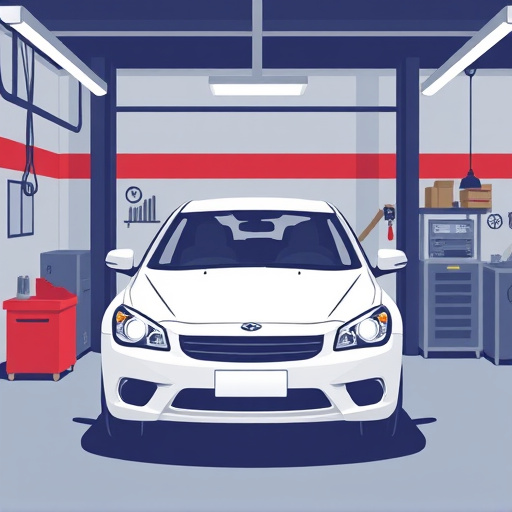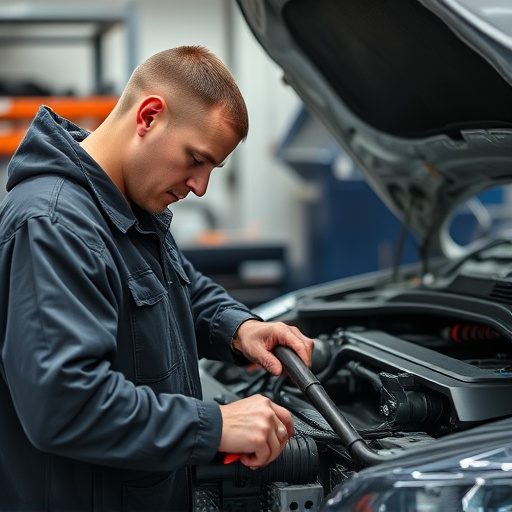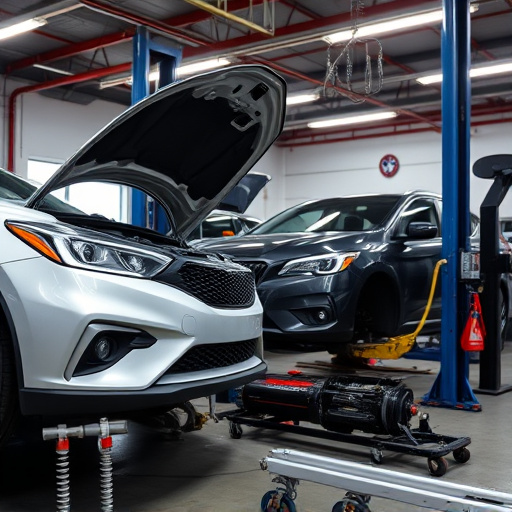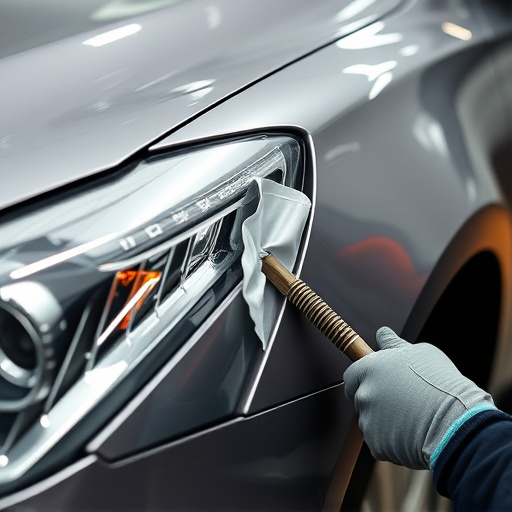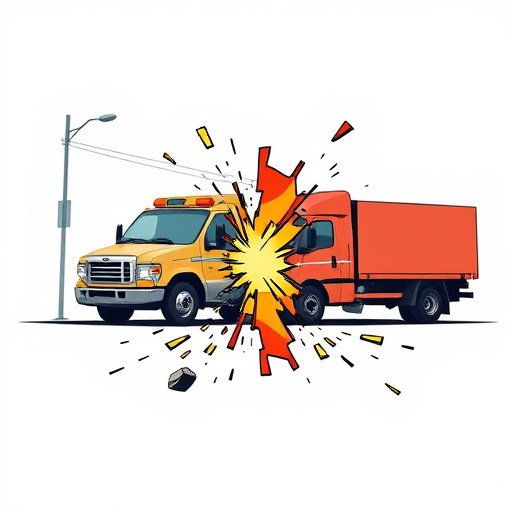Airbag safety certification is a critical component of collision repair, ensuring vehicles meet stringent safety standards. This comprehensive overview explores why certification is essential, delving into its role in maintaining repair quality and driver safety. We’ll break down the benefits for both repair shops and drivers, highlighting the importance of adhering to airbag safety standards in today’s automotive landscape. Understanding these factors underscores the significance of airbag safety certification in protecting lives and preserving vehicle integrity.
- Understanding Airbag Safety Certification: A Comprehensive Overview
- The Role of Certification in Ensuring Collision Repair Quality and Safety
- Benefits of Adhering to Airbag Safety Standards for Repair Shops and Drivers
Understanding Airbag Safety Certification: A Comprehensive Overview

Airbag safety certification is an indispensable process that ensures vehicle safety during and after a collision. It’s a comprehensive evaluation that verifies the functionality and reliability of airbags, crucial components designed to protect occupants in the event of a crash. This certification goes beyond simple inspection; it involves rigorous testing and adherence to stringent industry standards set by global regulatory bodies.
Understanding Airbag Safety Certification involves grasping how it encompasses every aspect of airbag systems—from sensor deployment mechanisms to inflator performance and fabric integrity. It’s not just about ensuring airbags deploy correctly; it also guarantees that the inflation process is controlled, minimizing the risk of secondary injuries. For a body shop offering collision repair services, obtaining and maintaining this certification is vital to restore vehicles to their pre-collision condition, ensuring both safety and customer satisfaction.
The Role of Certification in Ensuring Collision Repair Quality and Safety
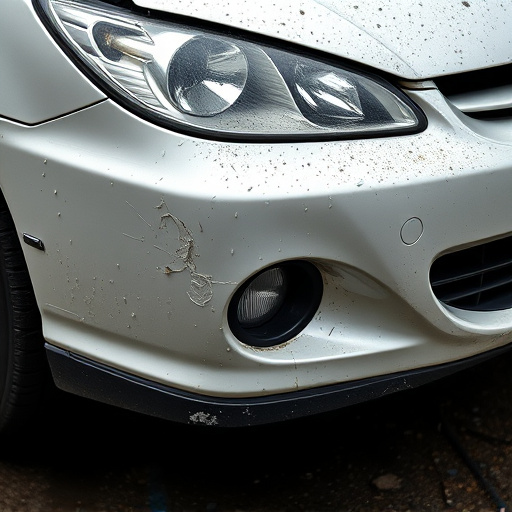
Benefits of Adhering to Airbag Safety Standards for Repair Shops and Drivers
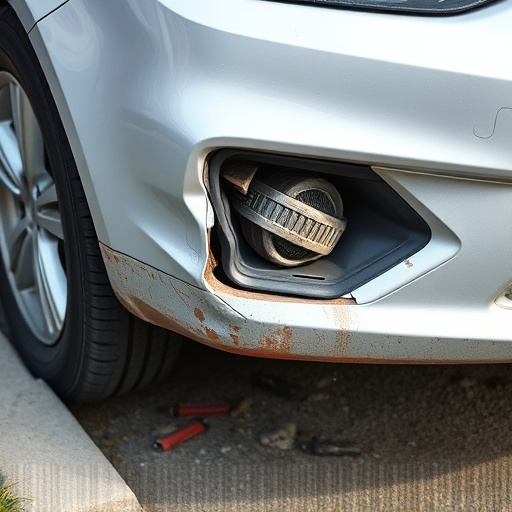
Adhering to airbag safety standards is paramount for repair shops and essential for ensuring driver safety. When a vehicle undergoes a collision, airbags are critical life-saving features that deploy at high speeds, requiring precise engineering and meticulous care during the repair process. Airbag safety certification guarantees that these complex systems function correctly after an accident, minimizing risks and preventing further harm to occupants.
For repair shops, achieving airbag safety certification is a demonstration of professionalism and commitment to quality. It ensures that their technicians are trained to handle sensitive airbag components without compromising integrity, thereby preserving the vehicle’s safety features. Drivers, too, benefit from this rigorous standard as it assures them that their cars will provide adequate protection in case of future accidents. This peace of mind is invaluable, knowing that certified repairs maintain the safety systems designed to safeguard them and their loved ones on the road.
Airbag safety certification is not just a regulatory requirement; it’s a vital step in ensuring collision repair quality and driver safety. By adhering to stringent airbag safety standards, repair shops demonstrate their commitment to restoring vehicles to pre-accident conditions while minimizing risks. For drivers, this means peace of mind, knowing that their airbag system is reliable and has undergone rigorous testing. Ultimately, prioritizing airbag safety certification fosters a culture of excellence in the automotive industry, protecting both passengers and roads alike.
